- Home
- Site Index
- About Me
-
My Books
- Book List & Themes
- Strictly for Adults Novels >
-
Tales from Portlaw
>
- No Need to Look for Love
- 'The Love Quartet' >
-
The Priest's Calling Card
>
- Chapter One - The Irish Custom
- Chapter Two - Patrick Duffy's Family Background
- Chapter Three - Patrick Duffy Junior's Vocation to Priesthood
- Chapter Four - The first years of the priesthood
- Chapter Five - Father Patrick Duffy in Seattle
- Chapter Six - Father Patrick Duffy, Portlaw Priest
- Chapter Seven - Patrick Duffy Priest Power
- Chapter Eight - Patrick Duffy Groundless Gossip
- Chapter Nine - Monsignor Duffy of Portlaw
- Chapter Ten - The Portlaw Inheritance of Patrick Duffy
- Bigger and Better >
- The Oldest Woman in the World >
-
Sean and Sarah
>
- Chapter 1 - 'Return of the Prodigal Son'
- Chapter 2 - 'The early years of sweet innocence in Portlaw'
- Chapter 3 - 'The Separation'
- Chapter 4 - 'Separation and Betrayal'
- Chapter 5 - 'Portlaw to Manchester'
- Chapter 6 - 'Salford Choices'
- Chapter 7 - 'Life inside Prison'
- Chapter 8 - 'The Aylesbury Pilgrimage'
- Chapter 9 - Sean's interest in stone masonary'
- Chapter 10 - 'Sean's and Tony's Partnership'
- Chapter 11 - 'Return of the Prodigal Son'
- The Alternative Christmas Party >
-
The Life of Liam Lafferty
>
- Chapter One: ' Liam Lafferty is born'
- Chapter Two : 'The Baptism of Liam Lafferty'
- Chapter Three: 'The early years of Liam Lafferty'
- Chapter Four : Early Manhood
- Chapter Five : Ned's Secret Past
- Chapter Six : Courtship and Marriage
- Chapter Seven : Liam and Trish marry
- Chapter Eight : Farley meets Ned
- Chapter Nine : 'Ned comes clean to Farley'
- Chapter Ten : Tragedy hits the family
- Chapter Eleven : The future is brighter
-
The life and times of Joe Walsh
>
- Chapter One : 'The marriage of Margaret Mawd and Thomas Walsh’
- Chapter Two 'The birth of Joe Walsh'
- Chapter Three 'Marriage breakup and betrayal'
- Chapter Four: ' The Walsh family breakup'
- Chapter Five : ' Liverpool Lodgings'
- Chapter Six: ' Settled times are established and tested'
- Chapter Seven : 'Haworth is heaven is a place on earth'
- Chapter Eight: 'Coming out'
- Chapter Nine: Portlaw revenge
- Chapter Ten: ' The murder trial of Paddy Groggy'
- Chapter Eleven: 'New beginnings'
-
The Woman Who Hated Christmas
>
- Chapter One: 'The Christmas Enigma'
- Chapter Two: ' The Breakup of Beth's Family''
- Chapter Three: From Teenager to Adulthood.'
- Chapter Four: 'The Mills of West Yorkshire.'
- Chapter Five: 'Harrison Garner Showdown.'
- Chapter Six : 'The Christmas Dance'
- Chapter Seven : 'The ballot for Shop Steward.'
- Chapter Eight: ' Leaving the Mill'
- Chapter Ten: ' Beth buries her Ghosts'
- Chapter Eleven: Beth and Dermot start off married life in Galway.
- Chapter Twelve: The Twin Tragedy of Christmas, 1992.'
- Chapter Thirteen: 'The Christmas star returns'
- Chapter Fourteen: ' Beth's future in Portlaw'
-
The Last Dance
>
- Chapter One - ‘Nancy Swales becomes the Widow Swales’
- Chapter Two ‘The secret night life of Widow Swales’
- Chapter Three ‘Meeting Richard again’
- Chapter Four ‘Clancy’s Ballroom: March 1961’
- Chapter Five ‘The All Ireland Dancing Rounds’
- Chapter Six ‘James Mountford’
- Chapter Seven ‘The All Ireland Ballroom Latin American Dance Final.’
- Chapter Eight ‘The Final Arrives’
- Chapter Nine: 'Beth in Manchester.'
- 'Two Sisters' >
- Fourteen Days >
-
‘The Postman Always Knocks Twice’
>
- Author's Foreword
- Contents
- Chapter One
- Chapter Two
- Chapter Three
- Chapter Four
- Chapter Five
- Chapter Six
- Chapter Seven
- Chapter Eight
- Chapter Nine
- Chapter Ten
- Chapter Eleven
- Chapter Twelve
- Chapter Thirteen
- Chapter Fourteen
- Chapter Fifteen
- Chapter Sixteen
- Chapter Seventeen
- Chapter Eighteen
- Chapter Nineteen
- Chapter Twenty
- Chapter Twenty-One
- Chapter Twenty-Two
-
Celebrity Contacts
-
Thoughts and Musings
- Bereavement >
- Nature >
-
Bill's Personal Development
>
- What I'd like to be remembered for
- Second Chances
- Roots
- Holidays of Old
- Memorable Moments of Mine
- Cleckheaton Consecration
- Canadian Loves
- Mum's Wisdom
- 'Early life at my Grandparents'
- Family Holidays
- 'Mother /Child Bond'
- Childhood Pain
- The Death of Lady
- 'Soldiering On'
- 'Romantic Holidays'
- 'On the roof'
- Always wear clean shoes
- 'Family Tree'
- The importance of poise
- 'Growing up with grandparents'
- Love & Romance >
- Christian Thoughts, Acts and Words >
- My Wedding
- My Funeral
- Audio Downloads
- My Singing Videos
- Bill's Blog
- Contact Me
'Tales from Portlaw'
Chapter One: 'Return of the Prodigal Son'
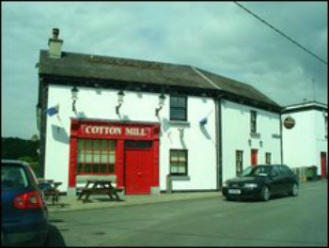
Sean Fanning drank slowly from his pint of Guinness as he looked around the crowded pub and listened to the comedian that the proprietor Maggie Rockett of the 'Cotton Mill' had hired for the night. This was the first pint of Guinness he'd drunk in Portlaw for over twenty-four years. Sean stood on familiar soil and yet he felt a stranger here. Indeed, he'd been born less than two hundred yards from the location of this pub in William Street, and although the house still stood occupied, nobody by the name of Fanning or closely related to a Fanning had lived there during the past nineteen years. His mum and dad had been the last occupants, but had died during Sean's absence from Portlaw. His mother now rested with generations of other Fannings in the graveyard of 'St. Michael's Catholic Church' on the brow of the hill, whereas the grave of Sean's father was somewhere out in Australia.
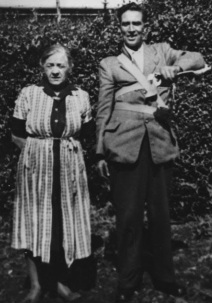
Indeed, the 'Cotton Mill' had only opened in the New Millennium and had stood derelict for many years before its rebirth. Sean could remember the old pub that had once stood here, but for the life of him, he couldn't recall its name. It was a 'spit and sawdust' establishment that was always filled with the smell of whiskey; a place where rebel songs were sung in safety to the melodic sound of an old squeeze box and with enough clouds from pipe smoke and Woodbines to make a pit man cough.
It had been the favourite haunt of his grandparents, Willie and Mary Fanning after a hard day's slog. When the closing hour of 11.00 pm arrived, the landlord would turn off the lights, light a few candles and bar the door to any travelling Garda who'd cycled the twelve miles across from Waterford in the hope of catching any poachers in the grounds of Curraghmore House.
It had been the favourite haunt of his grandparents, Willie and Mary Fanning after a hard day's slog. When the closing hour of 11.00 pm arrived, the landlord would turn off the lights, light a few candles and bar the door to any travelling Garda who'd cycled the twelve miles across from Waterford in the hope of catching any poachers in the grounds of Curraghmore House.

Although fewer than two hours had passed since Sean had returned to the town in County Waterford where he'd been born, he could hardly recognise it as the place of his misspent youth in which the formative years of development held fond memories for him. Since Sean had last set foot in Portlaw, this old mill and tannery town had altered so much.
Indeed, during the 19th century, it is said that Titus Salt from West Yorkshire in England had modelled his works and the Saltaire community in Bradford on Portlaw and its cotton-mill complex. The mill, which had employed the workforce between 1840 and 1932, had been converted into a tannery before Sean was born. After a tannery had been built on its site in 1932, most able-bodied men from Portlaw worked there. Since Sean had left the town twenty-four years earlier, the tannery had closed down. There was constant talk about getting it up and running again, but nothing ever came of it. The gates were locked and the old tannery remained closed, a relic of the past century and of the old millennium.
Indeed, during the 19th century, it is said that Titus Salt from West Yorkshire in England had modelled his works and the Saltaire community in Bradford on Portlaw and its cotton-mill complex. The mill, which had employed the workforce between 1840 and 1932, had been converted into a tannery before Sean was born. After a tannery had been built on its site in 1932, most able-bodied men from Portlaw worked there. Since Sean had left the town twenty-four years earlier, the tannery had closed down. There was constant talk about getting it up and running again, but nothing ever came of it. The gates were locked and the old tannery remained closed, a relic of the past century and of the old millennium.
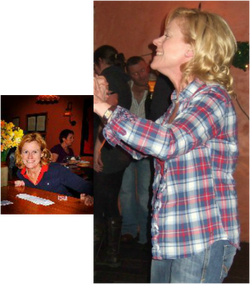
Portlaw seemed less inviting than Sean had imagined it to be before he'd decided to return to his roots. Sean was obliged to conclude that Portlaw was different and so was its folk who now lived there; none of whom he appeared to know by facial recognition and most of whom seemed much younger in years than him. The pub he was now drinking in had changed since he'd left Portlaw and the only sign of progress that he welcomed here was its attractive proprietor, Maggie Rockett.
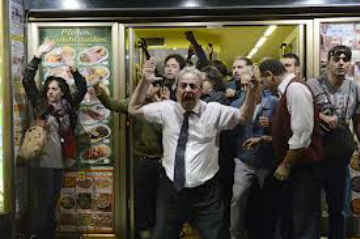
The crowd of customers jostled around him as they laughed raucously with the comedian who was doing his stand-up routine of mother-in-law and ghastly wife jokes. All continued to drink merrily. From the front door to the back door, it was virtually impossible to move or even lift one's glass of Guinness off the bar; assuming that it could still be found there! Nobody spoke to Sean, apart from a gesture to squeeze past him on their way to the toilets.
In spite of being an individual who would normally go out of his way these days to shun any status of recognition, for a few minutes, had it been physically possible for him to do so, he would have been prepared to stand up on the bar and yell out at the top of his voice, 'I'm Sean Fanning, formerly of 14, William Street, Portlaw and I've come back home; and if any man here objects to my presence in town, I'll meet him outside and give him instant satisfaction.'
In spite of being an individual who would normally go out of his way these days to shun any status of recognition, for a few minutes, had it been physically possible for him to do so, he would have been prepared to stand up on the bar and yell out at the top of his voice, 'I'm Sean Fanning, formerly of 14, William Street, Portlaw and I've come back home; and if any man here objects to my presence in town, I'll meet him outside and give him instant satisfaction.'
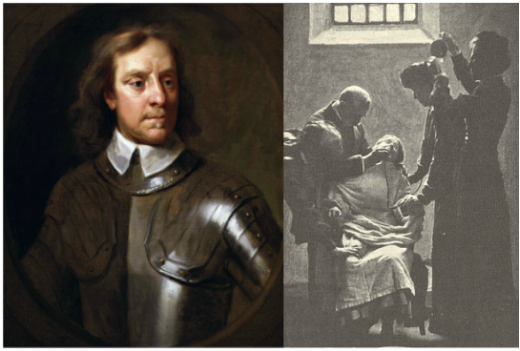
Part of Sean inwardly resented the fact that he'd returned to the town where he'd been born and was drinking in its most popular pub and not one person had recognised him as a Fanning or had spoken to him in the hour that he'd been there propping up the bar. No one patted him warmly on the back any longer as they had once done, or wished him the time of day as soon as they saw him.
The current pub patrons seemed to be made up of sons and daughters of his peers he'd grown up with. They were in blissful ignorance that one of their own stood close by; a man whose family ancestors and their rebellious actions against the English had touched the minds and souls of all Irish nationalists since the days of the Cromwellian massacre at Drogheda in 1649. Even his Aunt Mary had to be force-fed by the British during the early 1900's, when as a prisoner she refused to eat their English bread.
The current pub patrons seemed to be made up of sons and daughters of his peers he'd grown up with. They were in blissful ignorance that one of their own stood close by; a man whose family ancestors and their rebellious actions against the English had touched the minds and souls of all Irish nationalists since the days of the Cromwellian massacre at Drogheda in 1649. Even his Aunt Mary had to be force-fed by the British during the early 1900's, when as a prisoner she refused to eat their English bread.
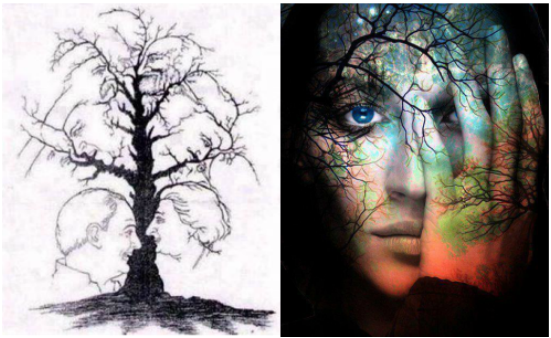
Sean's family tree spread its roots of influence way back to Cromwell's time. The name of Fanning was scratched in the cold slab-stone of many an English prison. In Portlaw itself, the name of Fanning was etched in the cemetery gravestones of the parish church for centuries past. Since parish records had been established, the baptisms of Fanning offspring, confirmations, marriages and deaths could be regularly found in the entries of 'St Michael's Catholic Church' or some other nearby church. Indeed, Sean was a man who'd originated from a family that was seeped in national pride and whose roots spread back centuries and crossed numerous Irish counties.
His ancestor, Paddy Fanning, had helped to fashion the Republic of Ireland as we know it today and had suffered death by English execution for his rebellious acts. Indeed, Paddy's father, Michael Fanning, was said to have campaigned vigorously to help the starving during the potato famine that blighted the country between 1845-1852. Many a poor Irish person considered Michael Fanning to be no less than a saint-in-waiting; a man whose heavenly rewards would come when he occupied the other side of the green sod. It was said that the first crop of potatoes that grew in any Portlaw field and allotment after the famine was strangely shaped and resembled the facial features of Michael Fanning, who for the remainder of his life answered to the name of Spud Fanning.
His ancestor, Paddy Fanning, had helped to fashion the Republic of Ireland as we know it today and had suffered death by English execution for his rebellious acts. Indeed, Paddy's father, Michael Fanning, was said to have campaigned vigorously to help the starving during the potato famine that blighted the country between 1845-1852. Many a poor Irish person considered Michael Fanning to be no less than a saint-in-waiting; a man whose heavenly rewards would come when he occupied the other side of the green sod. It was said that the first crop of potatoes that grew in any Portlaw field and allotment after the famine was strangely shaped and resembled the facial features of Michael Fanning, who for the remainder of his life answered to the name of Spud Fanning.
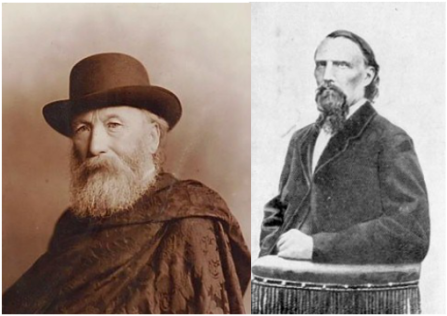
In 1858, Paddy Fanning helped to found a secret rebel organisation called, 'The Irish Republican Brotherhood'. The organisation was officially under the leadership of James Stephens and John O'Mahony, but the Fannings of Portlaw knew otherwise. While Stephens and O'Mahony were reportedly the young leaders of the 'Brotherhood', the story that had been passed down by Sean's forefathers was that Stephens and O'Mahony were educated figureheads of the movement, which was essentially controlled by Paddy Fanning, who played a background role.
Being in the background, reportedly allowed Paddy Fanning to travel to the United States of America where he was instrumental in helping to establish a sister organisation to the 'Irish Republican Brotherhood' that later became known as the 'Fenians'; a name that was derived from the warrior heroes of Irish mythology. This name was soon to be used for both organisations. The 'Fenians' in Ireland spread throughout the south and south-east of the country. They had been given promises of money for arms to arrive from America, but little did. Constitutional nationalists and the Roman Catholic Church expressed bitter opposition to the 'Fenian' movement, and one bishop even denounced the organisation from the pulpit with the words: 'Hell is not hot enough to roast the Fenians.'
Being in the background, reportedly allowed Paddy Fanning to travel to the United States of America where he was instrumental in helping to establish a sister organisation to the 'Irish Republican Brotherhood' that later became known as the 'Fenians'; a name that was derived from the warrior heroes of Irish mythology. This name was soon to be used for both organisations. The 'Fenians' in Ireland spread throughout the south and south-east of the country. They had been given promises of money for arms to arrive from America, but little did. Constitutional nationalists and the Roman Catholic Church expressed bitter opposition to the 'Fenian' movement, and one bishop even denounced the organisation from the pulpit with the words: 'Hell is not hot enough to roast the Fenians.'
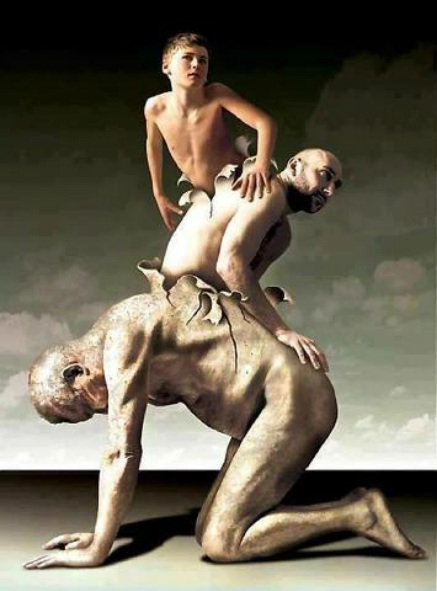
As a young child, Sean Fanning had been brought up by the nuns at school, learning the 'Three R's'; reading, writing and arithmetic. Sean would become a teenager before he would be able to remember the names of three English politicians, but having been reared in a staunchly Fenian household as the eldest of seven children, by the age of eight years he could cite you chapter and verse of Irish History between 1600 and 1922, along with naming every Irish hero who'd lived within this period. All of these Irish National heroes held a status of martyrdom in the Fanning household and were arrayed in chronological importance of their time in framed photographs that hung along the lengthy, narrow wall of the family home. These were names stretching back to Paddy Fanning, James Stephens, John O'Mahony, John Boyle O'Reily, John Devoy, John O'Connor Power, Thomas Brennan, Michael Davitt, Bulmer Hobson, Jeremiah O'Donovan Rossa, Tom Clarke and numerous others down to the 1930s. All had built their fame and reputations upon the backs of the men who'd fought the fight before them. Indeed, Sean's father, Sean Fanning Senior, had frequently said that the leather hides of the Tannery were wrapped so tightly around the waists of Portlaw men that if one burst them open, out would pop a Fenian and upon his back would be supported, another Fenian!
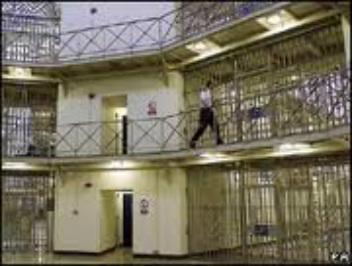
Despite it being 2001 and 'The Good Friday Agreement' having being signed in Belfast on the 10th, April, 1998, Sean had never accepted this peace paper as readily as the majority of Great Britain had been prepared to. To him, a 'United Ireland' was still a dream that was worth holding out for, even though he knew that he wouldn't see this in his lifetime unless all Catholics reverted to form and started breeding large families of ten and more children again.
Although a new millennium had dawned, Sean was no less nationalistic or patriotic to the tricolour today than he'd ever been. It therefore irked him slightly that he had purposely avoided taking 'direct action' against the British Government when he went to England at the age of seventeen years instead of having kept his head down. Upon arrival in England, he'd been desirous to keep a clean record in a new land and yet, within a short space of time on English soil, he had nevertheless found himself being incarcerated for six-years in H.M. Prison Strangeways!
Although a new millennium had dawned, Sean was no less nationalistic or patriotic to the tricolour today than he'd ever been. It therefore irked him slightly that he had purposely avoided taking 'direct action' against the British Government when he went to England at the age of seventeen years instead of having kept his head down. Upon arrival in England, he'd been desirous to keep a clean record in a new land and yet, within a short space of time on English soil, he had nevertheless found himself being incarcerated for six-years in H.M. Prison Strangeways!

Today, Sean drank his Guinness in solitude, despite the crowded atmosphere that was fast growing in the lively pub. The comedian was going down great guns with the punters and having told two or three marriage jokes that had been greatly enjoyed, he decided to remain on the safe ground of popularity for a bit longer, so told another.

"Why should any man here waste their valuable time getting married?" the comedian asked his audience. A hushed silence awaited the response. "Don't waste a moment of your valuable time, lads," the comedian continued, "just find a woman; any old woman who you don't like will do and then buy her a house and give her all your money!"
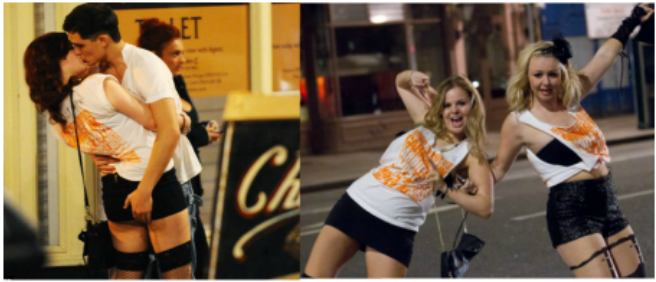
The audience loved it and to tell the truth, so did Sean. He supped up his pint and prepared to return to his lodging house for the night at the end of Brown Street. On his way back, he spotted a couple of Saturday night revellers who were scantily clad and had obviously had a couple of drinks too many. Then he saw a young man grab a third girl and start to grope her. He initially thought of intervening, but soon saw that the young girl seemed to be up for it as much as her male friend with the hands of an octopus. Sean momentarily forgot his own age as he became faintly aroused by the manner in which the young girls were dressed. To tell the truth, a small part of him was also a bit jealous of the young man's youth. He looked to be around eighteen years old and had his whole life ahead of him. "I hope the poor sod doesn't waste his early years like I did," Sean thought as he walked back to his digs.

As he hit the pillow, Sean found himself first thinking of the young girls and reminding himself that they were young enough to be his daughters. They were no older than his Sarah had been when he'd last seen her. Thoughts of a more sinful nature gradually blended into romantic reminiscing about the teenage years he'd spent growing up alongside Sarah Platt. As he drifted off to sleep with the tiredness of all his travelling that day, his mind turned to Sarah, the first girl he'd ever loved and the one who would lay first claim to his heart. He was now in his 40th year of life and hadn't seen her for almost a quarter of a century, yet she still possessed the power to preoccupy his mind, ever since she'd suddenly vanished from his life in 1976.
|
Click here for the next page
|
Click here for the previous page
|

